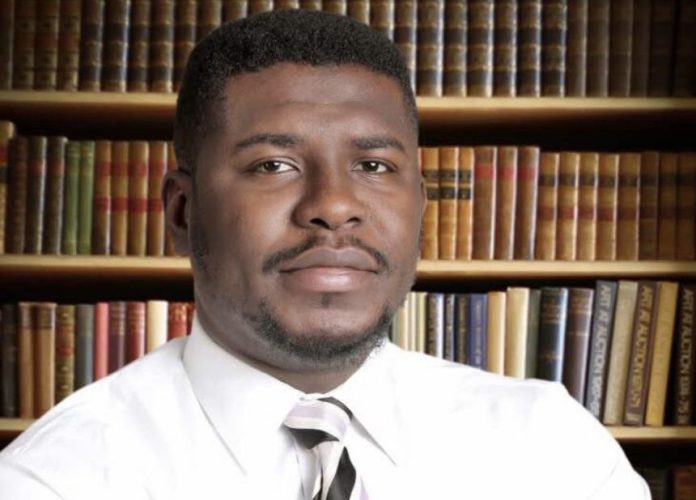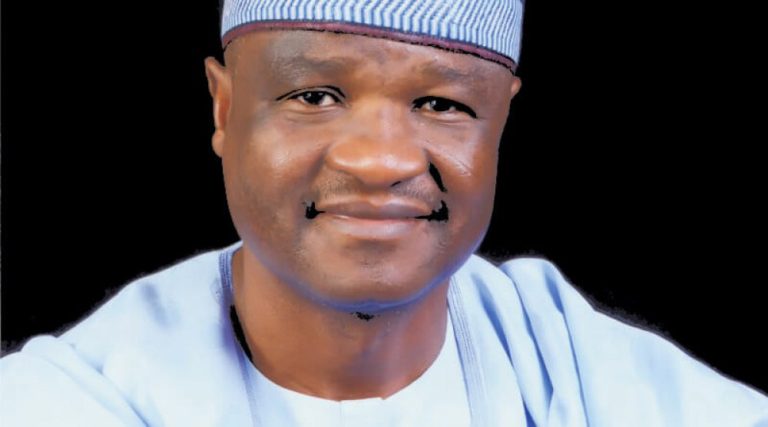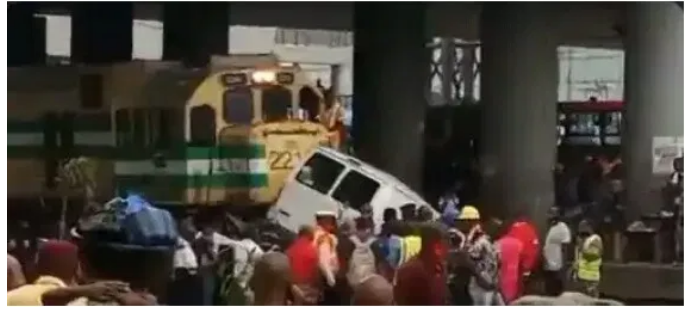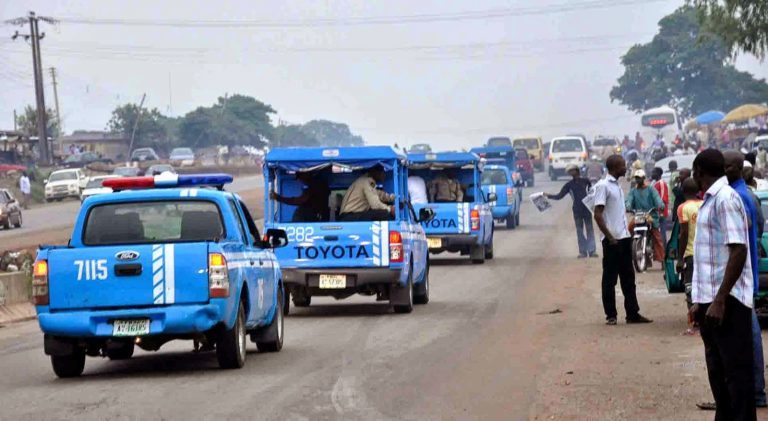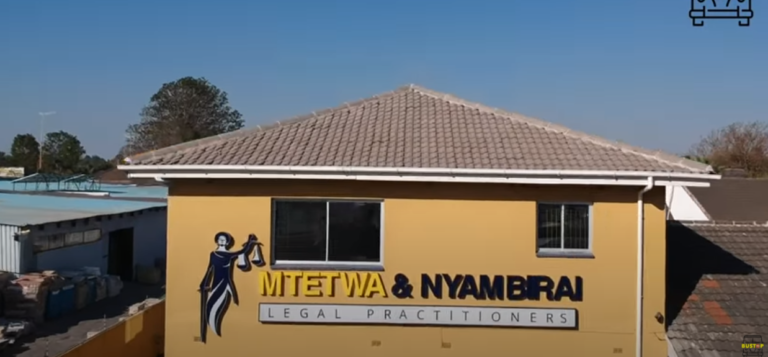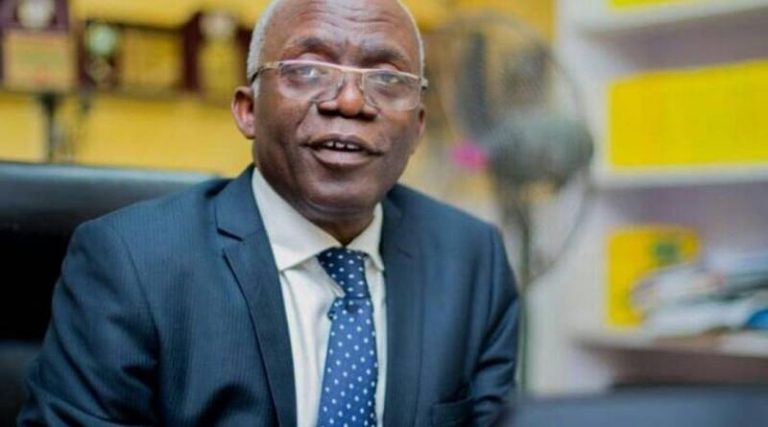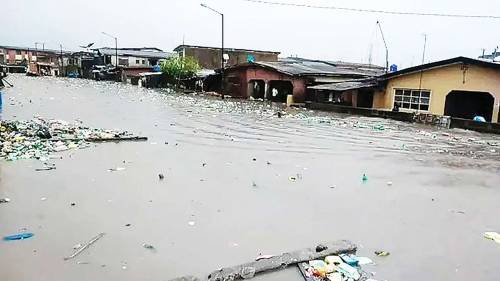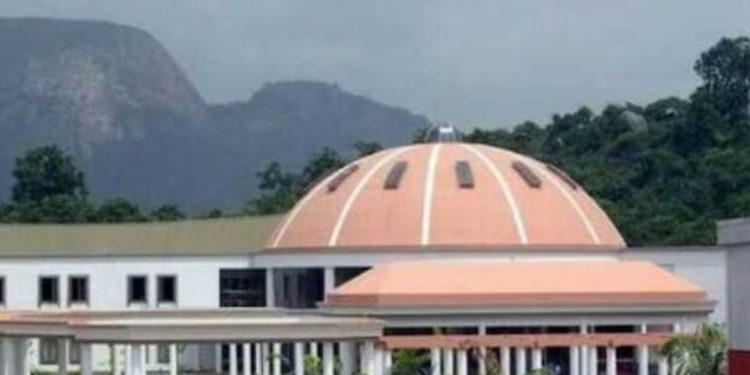Human rights lawyer and Senior Advocate of Nigeria Femi Falana has petitioned the African Commission on Human and Peoples’ Rights in Banjul, The Gambia over the death sentence on Kano singer Sharif Yahya Sharif.
Falana is asking the Commission to exercise its mandates and authority under the African Charter on Human and Peoples’ Rights and pursuant to the commission’s order 100(1) of the commission’s Rules of Procedure, 2020.
Falana in the petition dated 8 September 2020, states: “I am writing to you on behalf of Sharif Yahya Sharif to ask the Commission to consider this request for provisional measures. The request is submitted in conjunction with our communication on behalf of Sharif Yahya Sharif convicted and sentenced to death for blasphemy in Kano State of Nigeria.”
The petition reads in part: “Our communication details multiple violations of his right to life and fair trial rights guaranteed under the African Charter on Human and Peoples’ Rights, and resolutions on moratorium on executions adopted by both the African Commission on Human and Peoples’ Rights and the Third Committee of the UN General Assembly.”
“We respectfully submit that the Commission should urgently invoke its rules of procedure and its mandates and authority under the African Charter on Human and Peoples’ Rights to request that Nigeria adopt these provisional measures in order to stop the irreparable damage that would be caused to the petitioner and his Charter rights.”
“The petitioner is a Nigerian citizen, who has been found guilty of the offence of blasphemy against Prophet Mohammed (PBUH) contrary to section 382 (B) of the Kano State Shari’a Penal Code Law 2000 (which carries death sentence), and convicted.”
“Despite their obligations under the African Charter on Human and Peoples’ Rights and other international treaties to which Nigeria is a state party, the Nigerian authorities continue to violate the fair trial and other rights of the petitioner, and put him at risk of imminent execution.”
“In particular, there are serious, persistent and irreparable violations of the petitioner’s rights to life; and to fair trials, including to competent and effective legal representation.”
“According to our information, on August 10, the Upper Sharia Court sitting in Kano, Kano State convicted Sharif Yahaya Sharif of blasphemy and sentenced him to death by hanging. The request for a certified true copy of the judgment of the Court was also not granted on time.”
“When the petitioner informed the Court that he could not afford and secure the services of a Lawyer to defend him, the Court ordered the Legal Aid Council to assign him a Lawyer so that the petitioner could enjoy access to legal representation. However, the order was disobeyed by the Legal Aid Council. The Legal Aid Council is the body established by law to provide legal support to indigent citizens especially in cases involving death penalty.”
“An appeal at the Kano State High Court against the conviction and death sentence imposed on the petitioner has been filed, but we submit that the petitioner will not enjoy a fair hearing, as he continues to face imminent execution by hanging. The petitioner is currently held incommunicado and without access to the outside world, including his lawyers.”
“The petitioner is at risk of imminent execution. Nigeria is a state party to the African Charter on Human and Peoples’ Rights but there is growing crackdown on human rights including the rights to freedom of expression, peaceful assembly, and attack on the rule of law and independence of the judiciary in Nigeria. As a result, human rights continue to be violated with impunity.”
“The right to a fair trial including to legal representation is a fundamental safeguard to assure that individuals are not unjustly punished. It is indispensable for the protection of other human rights such as the right to freedom from torture and the right to life. However, when people are subjected to unfair trials, justice cannot be served.”
“The petitioner contends that he has been deprived of his liberty and other fair trial rights and his right to life may be irreparably violated. Like the African Charter, Article 6 of the International Covenant on Civil and Political Rights (CCPR), which Nigeria has also ratified, provides that no one shall be arbitrarily deprived of his life. The word “arbitrarily” here means both ‘illegally’ and ‘unjustly’.”
“Furthermore, the African Commission on Human and Peoples’ Rights at its 44th Ordinary Session in Abuja, Nigeria, in November 2008 adopted a resolution calling on African States, including Nigeria, that still retain the death penalty to observe a moratorium on the execution of death sentences with a view to abolishing the death penalty.”
“For the above reasons, the petitioner considers that the application of the death penalty in his case will be illegal and unjust. The petitioner considers supervening factors such as those highlighted above to be sufficient grounds for setting aside the death sentences imposed on him.”
“Prisoners are not denuded of their rights by mere conviction. If carried out, the death sentence on the petitioner would amount to inhuman or degrading treatment. The petitioner has been deprived of his liberty and other fair trial rights and unless the African Commission urgently intervenes, his right to life may be irreparably violated.”
“The petitioner considers that the application of the death penalty in the case of Sharif Yahya Sharif will be illegal and unjust. We consider supervening factors such as those highlighted above to be sufficient grounds for setting aside the death sentences imposed on the petitioner.”
“Given the climate of persistent human rights violations in Nigeria and the impunity of perpetrators, the urgent intervention by the African Commission is required to protect the petitioner against irreparable damage.”
Falana is therefore asking the Commission to find that Nigeria:
By virtue of its consistent denial of fair trial and other rights of Nigerians, find that Nigeria has violated Articles 1, 2, 3, 4, 5, 6, and 7 of the Charter;
By virtue of the decision to execute the petitioner, find that Nigeria has violated his right to life under Article 4 of the African Charter, and the resolutions on moratorium on executions adopted by both the African Commission on Human and Peoples’ Rights and the UN General Assembly.
Find that Nigeria has deliberately and wilfully disregarded the request by the African Commission to the effect that African countries, including Nigeria that still retain the death penalty should fully comply with their obligations under the African Charter on Human and Peoples’ Rights, and guarantee to every person accused of crimes for which capital punishment is applicable, fair trial standards, including access to legal representation.
Ask Nigeria to immediately and unconditionally release the petitioner who is facing imminent execution simply for exercising his human rights, and to pay appropriate compensation to the petitioner for the multiple violations of his Charter rights and freedoms.
Ask Nigeria to faithfully and fully implement resolutions on moratorium on executions adopted by both the African Commission on Human and Peoples’ Rights and the Third Committee of the UN General Assembly.
Provisional Measure No. 1: Immediately remove the petitioner from imminent execution or any risk of execution, and fully accord the petitioner his fair trial and other human rights, pending this Commission’s decision. Unless the African Commission urgently intervenes in this case, there is a risk of irreversible denial of the petitioner’s rights, which in turn will render nugatory the resolutions on moratorium on executions by the African Commission and the Third Committee of the UN General Assembly.
Provisional Measure No. 2: Give assurances that the petitioner facing imminent execution will not be executed.
The Nigerian authorities should also give assurances that they will fully implement the resolutions on moratorium on executions by the African Commission and the Third Committee of the UN General Assembly.
Provisional Measure No. 3: Impartially, independently and transparently investigate whether the petitioner received fair trial and other international human rights guarantees applicable to his situation. Pending the government’s fulfilling this important responsibility, the Commission’s urgent intervention is required to ensure that the petitioner’s rights to life and fair trial are not unjustly and illegally violated.
Provisional Measure No. 4: Undertake a prompt review of its legal framework and administrative practices on the use of the death penalty to ensure their consistency with the resolutions on moratorium on executions by the African Commission and the Third Committee of the UN General Assembly
Meanwhile, Chairperson of the African Commission Dr Solomon Ayele Dersoo has confirmed that the commission is now considering the petition. In his response to the petition yesterday, Dr Dersoo stated that, “Your petition and request are well received. The Secretariat will take steps for following up on this as per the Rules of Procedure of the Commission without prejudice to other steps already in motion.”
Abuja (Sundiata Post) – Human rights lawyer and Senior Advocate of Nigeria Femi Falana has petitioned the African Commission on Human and Peoples’ Rights in Banjul, The Gambia over the death sentence on Kano singer Sharif Yahya Sharif.
Falana is asking the Commission to exercise its mandates and authority under the African Charter on Human and Peoples’ Rights and pursuant to the commission’s order 100(1) of the commission’s Rules of Procedure, 2020.
Falana in the petition dated 8 September 2020, states: “I am writing to you on behalf of Sharif Yahya Sharif to ask the Commission to consider this request for provisional measures. The request is submitted in conjunction with our communication on behalf of Sharif Yahya Sharif convicted and sentenced to death for blasphemy in Kano State of Nigeria.”
The petition reads in part: “Our communication details multiple violations of his right to life and fair trial rights guaranteed under the African Charter on Human and Peoples’ Rights, and resolutions on moratorium on executions adopted by both the African Commission on Human and Peoples’ Rights and the Third Committee of the UN General Assembly.”
“We respectfully submit that the Commission should urgently invoke its rules of procedure and its mandates and authority under the African Charter on Human and Peoples’ Rights to request that Nigeria adopt these provisional measures in order to stop the irreparable damage that would be caused to the petitioner and his Charter rights.”
“The petitioner is a Nigerian citizen, who has been found guilty of the offence of blasphemy against Prophet Mohammed (PBUH) contrary to section 382 (B) of the Kano State Shari’a Penal Code Law 2000 (which carries death sentence), and convicted.”
“Despite their obligations under the African Charter on Human and Peoples’ Rights and other international treaties to which Nigeria is a state party, the Nigerian authorities continue to violate the fair trial and other rights of the petitioner, and put him at risk of imminent execution.”
“In particular, there are serious, persistent and irreparable violations of the petitioner’s rights to life; and to fair trials, including to competent and effective legal representation.”
“According to our information, on August 10, the Upper Sharia Court sitting in Kano, Kano State convicted Sharif Yahaya Sharif of blasphemy and sentenced him to death by hanging. The request for a certified true copy of the judgment of the Court was also not granted on time.”
“When the petitioner informed the Court that he could not afford and secure the services of a Lawyer to defend him, the Court ordered the Legal Aid Council to assign him a Lawyer so that the petitioner could enjoy access to legal representation. However, the order was disobeyed by the Legal Aid Council. The Legal Aid Council is the body established by law to provide legal support to indigent citizens especially in cases involving death penalty.”
“An appeal at the Kano State High Court against the conviction and death sentence imposed on the petitioner has been filed, but we submit that the petitioner will not enjoy a fair hearing, as he continues to face imminent execution by hanging. The petitioner is currently held incommunicado and without access to the outside world, including his lawyers.”
“The petitioner is at risk of imminent execution. Nigeria is a state party to the African Charter on Human and Peoples’ Rights but there is growing crackdown on human rights including the rights to freedom of expression, peaceful assembly, and attack on the rule of law and independence of the judiciary in Nigeria. As a result, human rights continue to be violated with impunity.”
“The right to a fair trial including to legal representation is a fundamental safeguard to assure that individuals are not unjustly punished. It is indispensable for the protection of other human rights such as the right to freedom from torture and the right to life. However, when people are subjected to unfair trials, justice cannot be served.”
“The petitioner contends that he has been deprived of his liberty and other fair trial rights and his right to life may be irreparably violated. Like the African Charter, Article 6 of the International Covenant on Civil and Political Rights (CCPR), which Nigeria has also ratified, provides that no one shall be arbitrarily deprived of his life. The word “arbitrarily” here means both ‘illegally’ and ‘unjustly’.”
“Furthermore, the African Commission on Human and Peoples’ Rights at its 44th Ordinary Session in Abuja, Nigeria, in November 2008 adopted a resolution calling on African States, including Nigeria, that still retain the death penalty to observe a moratorium on the execution of death sentences with a view to abolishing the death penalty.”
“For the above reasons, the petitioner considers that the application of the death penalty in his case will be illegal and unjust. The petitioner considers supervening factors such as those highlighted above to be sufficient grounds for setting aside the death sentences imposed on him.”
“Prisoners are not denuded of their rights by mere conviction. If carried out, the death sentence on the petitioner would amount to inhuman or degrading treatment. The petitioner has been deprived of his liberty and other fair trial rights and unless the African Commission urgently intervenes, his right to life may be irreparably violated.”
“The petitioner considers that the application of the death penalty in the case of Sharif Yahya Sharif will be illegal and unjust. We consider supervening factors such as those highlighted above to be sufficient grounds for setting aside the death sentences imposed on the petitioner.”
“Given the climate of persistent human rights violations in Nigeria and the impunity of perpetrators, the urgent intervention by the African Commission is required to protect the petitioner against irreparable damage.”
Falana is therefore asking the Commission to find that Nigeria:
By virtue of its consistent denial of fair trial and other rights of Nigerians, find that Nigeria has violated Articles 1, 2, 3, 4, 5, 6, and 7 of the Charter;
By virtue of the decision to execute the petitioner, find that Nigeria has violated his right to life under Article 4 of the African Charter, and the resolutions on moratorium on executions adopted by both the African Commission on Human and Peoples’ Rights and the UN General Assembly.
Find that Nigeria has deliberately and wilfully disregarded the request by the African Commission to the effect that African countries, including Nigeria that still retain the death penalty should fully comply with their obligations under the African Charter on Human and Peoples’ Rights, and guarantee to every person accused of crimes for which capital punishment is applicable, fair trial standards, including access to legal representation.
Ask Nigeria to immediately and unconditionally release the petitioner who is facing imminent execution simply for exercising his human rights, and to pay appropriate compensation to the petitioner for the multiple violations of his Charter rights and freedoms.
Ask Nigeria to faithfully and fully implement resolutions on moratorium on executions adopted by both the African Commission on Human and Peoples’ Rights and the Third Committee of the UN General Assembly.
Provisional Measure No. 1: Immediately remove the petitioner from imminent execution or any risk of execution, and fully accord the petitioner his fair trial and other human rights, pending this Commission’s decision. Unless the African Commission urgently intervenes in this case, there is a risk of irreversible denial of the petitioner’s rights, which in turn will render nugatory the resolutions on moratorium on executions by the African Commission and the Third Committee of the UN General Assembly.
Provisional Measure No. 2: Give assurances that the petitioner facing imminent execution will not be executed.
The Nigerian authorities should also give assurances that they will fully implement the resolutions on moratorium on executions by the African Commission and the Third Committee of the UN General Assembly.
Provisional Measure No. 3: Impartially, independently and transparently investigate whether the petitioner received fair trial and other international human rights guarantees applicable to his situation. Pending the government’s fulfilling this important responsibility, the Commission’s urgent intervention is required to ensure that the petitioner’s rights to life and fair trial are not unjustly and illegally violated.
Provisional Measure No. 4: Undertake a prompt review of its legal framework and administrative practices on the use of the death penalty to ensure their consistency with the resolutions on moratorium on executions by the African Commission and the Third Committee of the UN General Assembly
Meanwhile, Chairperson of the African Commission Dr Solomon Ayele Dersoo has confirmed that the commission is now considering the petition. In his response to the petition yesterday, Dr Dersoo stated that, “Your petition and request are well received. The Secretariat will take steps for following up on this as per the Rules of Procedure of the Commission without prejudice to other steps already in motion.” sundiatapost

